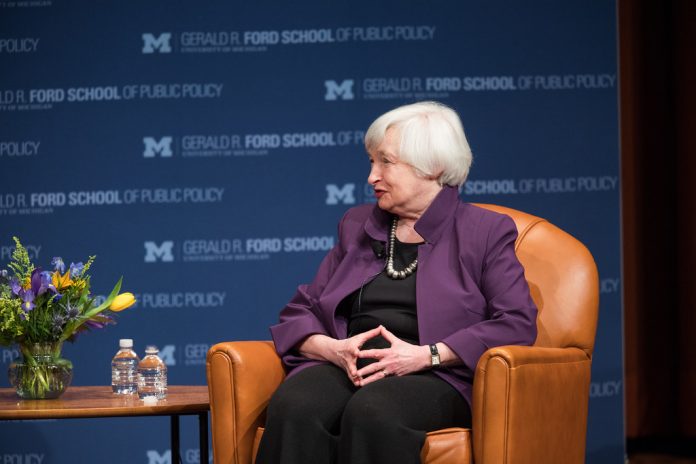
By Andreas Hellmann, International Advocacy Manager, Americans for Tax Reform Foundation
Earlier this month, G7 leaders endorsed U.S. President Biden’s administration’s plan to implement a global minimum corporate tax of 15%. This measure would effectively eliminate tax competition and create a taxation cartel. Many European leaders cheered the Biden administration for leading the charge and embraced the plan as it would solve what many see as a problem for the European Union: tax competition.
For many years, there have been attempts by the European Union to harmonize corporate tax rates within the Union. Thankfully, those efforts have been hindered due to fierce opposition by a number of member states that consider taxation to be an important component of competition.
Hungary, which relies heavily on foreign investment to boost its economy, implemented the EU’s lowest corporate tax rate, at 9 percent, followed by Ireland’s 12.5 percent rate which is also among the most competitive rates in the 28-member union.
Today four EU countries (Hungary, Bulgaria, Cyprus and Ireland) fall below the 15% threshold for corporate tax. Will they give in under international pressure or hold their ground? Remember: taxation = unanimity. pic.twitter.com/UKlJ7uF1aS
— Jorge Liboreiro (@JorgeLiboreiro) June 8, 2021
"In defense of tax competition within the EU"
New article, by @pietercleppe:https://t.co/MWtgxPMZ9B#EU #taxcompetition #taxharmonisation— BrusselsReport.EU (@brussels_report) April 22, 2021
Competitiveness is however not the only reason those member states do not want the EU to strip member states of their veto power on tax matters. At the heart of their concern is financial sovereignty and a fundamental view that smaller, local governance contributes to better decision making, benefiting citizens, than a bloated, undemocratic bureaucracy far away in Brussels.
Now the European Commission and leaders from France, Germany and other high-tax countries see an opportunity to implement tax harmonization. However, despite the agreement at the level of the G7 and also the G20, an actual global agreement is far from settled and the political fight is likely to continue over the coming months and years, also become some EU member states will fight for their independence and their right to run their sovereign low-tax regimes.
The EC is pushing 6 EU member states (Cyprus, Ireland, Hungary, Luxembourg, Malta and the Netherlands) to clamp down on sweetheart corporate tax deals to receive EU recovery fund. “In principle a milestone not met means no disbursement,” EU official said. https://t.co/JKoRhc1d24
— Chiara Putaturo (@ChiaraPutaturo) April 27, 2021
EU COMMISSION PLAN PROPOSES THAT CERTAIN LARGE COMPANIES PUBLISH THEIR EFFECTIVE TAX RATES || EUROPEAN COMMISSION ADOPTS PLAN FOR SINGLE CORPORATE TAX RULEBOOK FOR THE EU
— First Squawk (@FirstSquawk) May 18, 2021
U.S. Secretary of the Treasury Janet Yellen (picture) and her French counterpart Bruno Le Maire were the ones pushing for the corporate global minimum tax agreement, arguing it is needed to “end the race to the bottom” and “make all citizens fairly share the burden of financing government.”
What’s another term for a “race to the bottom”? It is “competition”, ironically the very principle that according to American Democrats and European bureaucrats would be missing in a number of industries, such as the one dominated by Big Tech. However, when it’s about American and European governments, all that talk of the benefits of vigorous competition for consumers and workers falls by the wayside.
The European Union in particular has a long history of discriminating American technology companies, by means of antitrust fines and digital services taxes, employing the argument that those companies would not be competing in a fair manner. The double standard is truly shameless.
Digital Services Taxes in Europe – Fight for a pittance or focus on economic recovery? States could get a Pyrrhus victory in Europe with a patchwork of rules, retaliation discussions, price increses for digital services to small business https://t.co/KtLSEjac1q
— andre claes (@andreclaes) June 25, 2020
Putting a floor on the cost of government is like putting a floor on the cost of any other product. It is bad for consumers. In this case, it is also bad for businesses and workers.
An OPEC for politicians
Grover Norquist, President of Americans for Tax Reform has put it nicely:
“Cartels that keep prices high hurt consumers. Creating a tax OPEC of governments to avoid tax competition is bad for citizens and taxpayers. Competition drives out self-serving rent-seekers in business and in government.”
This is exactly what G7 leaders agreed on: a global cartel to raise taxes. An OPEC for politicians to keep taxes at a high level.
Americans for Tax Reform is leading a large international coalition of 76 conservative groups and activists from 40 different nations to oppose the implementation of a global minimum corporate tax rate. In a joint letter, they stress:
“The proposed 15 percent minimum tax rate would be particularly detrimental to countries such as Ireland, Bulgaria, and Hungary that currently keep their corporate tax rates at lower, more competitive rates. A global minimum tax also threatens poorer, developing countries that need to maintain high growth rates in order to be lifted out of poverty.”
If this global minimum tax agreement of AT LEAST 15 percent is allowed to go into effect, it would surrender countries’ financial sovereignty to unelected Parisian bureaucrats working for the OECD that are keen to shackle the world through high taxes and big government.
European politicians see this plan as a way to raise taxes and finance their spending sprees without losing tax revenue to competition, something which really is the cartelist’s playbook 101. In addition, they intend to go forward with their discriminatory measures like digital taxes, to even extract more revenue from American multinationals – talking about “fairness”.
China
The most important element which Western politicians however ignore, in their dream world which is detached from reality, is this: Countries like China and Russia are expected to find ways to ignore the global minimum tax entirely or avoid it whenever they can. China is already demanding massive exemptions and may ultimately simply ignore the agreement.
China actually considers all of this to be a huge opportunity to cut taxes while everyone else is hiking them. It intends to do so to attract more investment, promote domestic manufacturing and become even more competitive and economically successful.
A global minimum tax is truly a gift for the Chinese Communist Party (CCP) and their “New Silk Road” venture. It would dangerously hold back Western economies, just when we are entering a new era of global competition with China. It would pave the way for Chinese companies to displace American and European success stories in tech, pharmaceuticals, manufacturing and other vital industries.
Just recently, China enacted a 200 percent tax deduction for eligible research and development expenses. Already, China offers a preferential 15 percent tax rate for high-tech and other innovative enterprises.
Instead of limiting European and American competitiveness by creating a cartel to keep taxes high, the Western world should immediately cease petty and populist discriminatory measures like digital taxes and other trade barriers. The focus must be to ensure that the West becomes more competitive and more innovative than China, under a democratic form of government that is as small, cost-effective and as little intrusive as possible.
Disclaimer: www.BrusselsReport.eu will under no circumstance be held legally responsible or liable for the content of any article appearing on the website, as only the author of an article is legally responsible for that, also in accordance with the terms of use.












